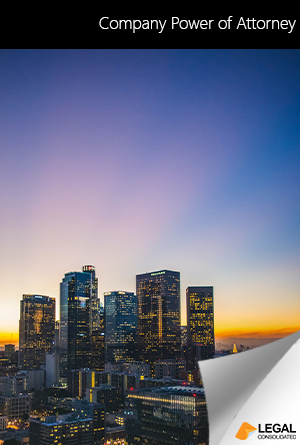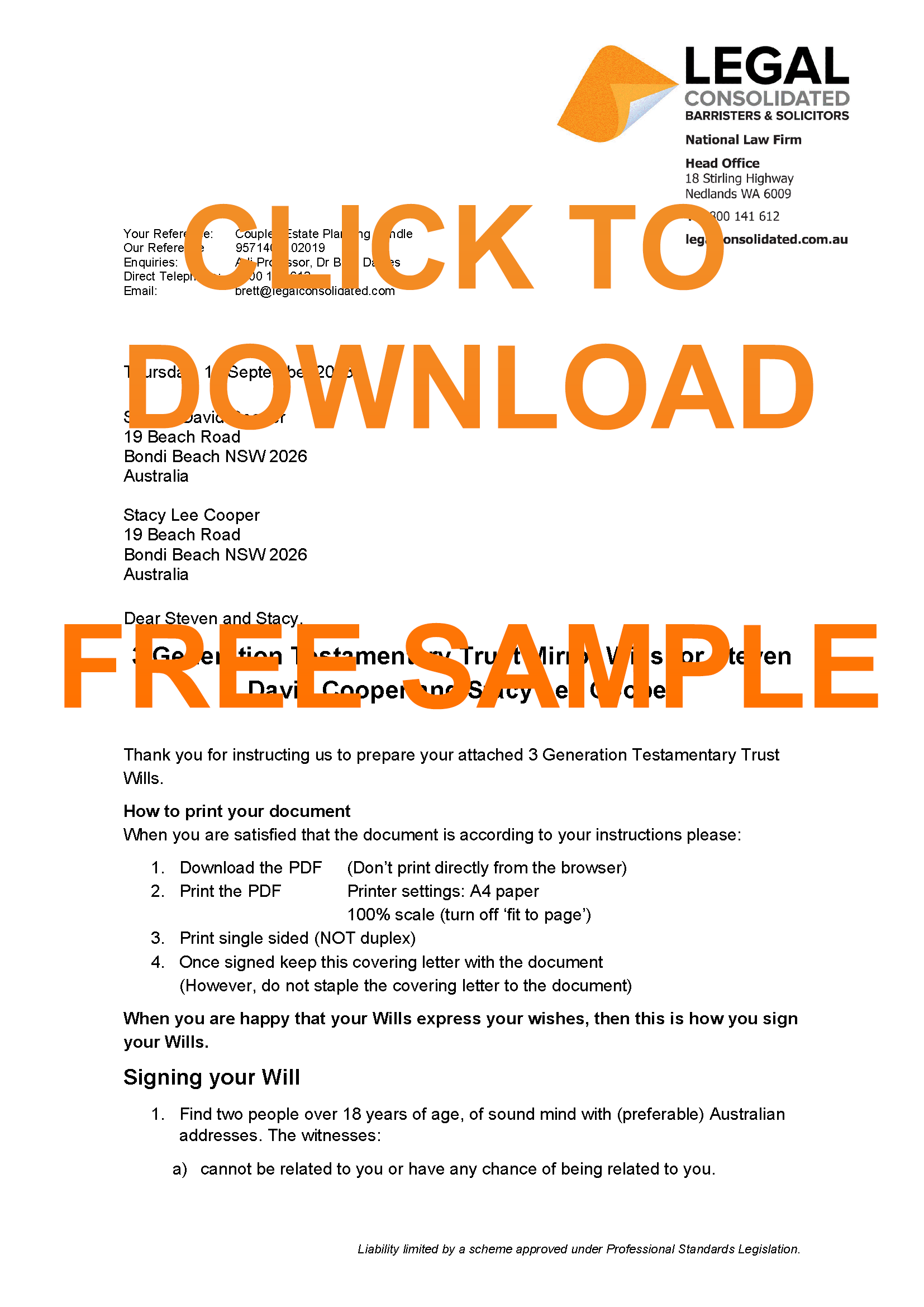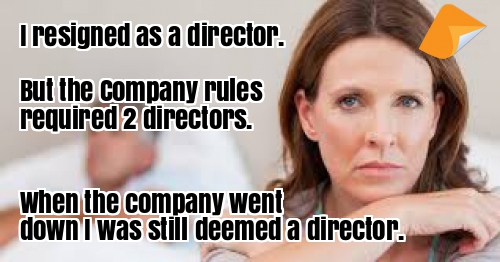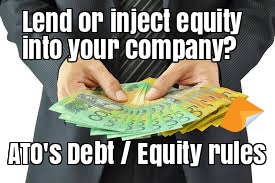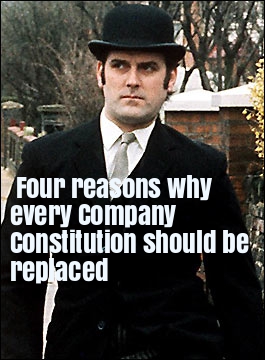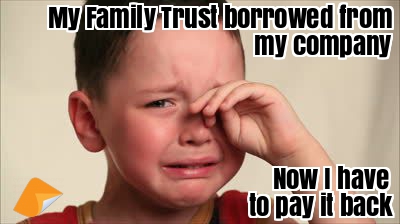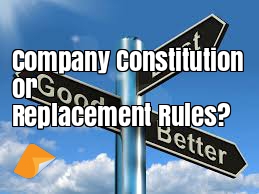What is a company power of attorney?
In a company power of attorney, the company appoints someone to act on its behalf. The person the company appoints is called an ‘attorney’.
The company empowers the attorney. This is done with a company’s power of attorney. The company power of attorney allows the attorney to:
- sign on the company’s behalf
- carry out the company’s tasks
- have the legal authority to act on the company’s behalf
- look after the company’s affairs
This is important if the company directors are sick, lost mental capacity, missing or dead.
Example of how a company power of attorney works in Australia
The company must urgently sign a document. Where is the director? The director is sick, dead, suffering from dementia or overseas.
Thankfully, via Company POA the company had appointed an ‘attorney’. This is to sign legal documents on behalf of the company. This is called a Company Power of Attorney.
Is a Company POA a legal document?
A company power of attorney is a legal document where the company appoints another ‘person’. This person is an ‘attorney’ and acts on the company’s behalf. The attorney carries out tasks for the company. This is different to the job of a director.
Company POA vs Company Director
A person holding a POA for a company is different to a director:
- A company acts through its directors. The company directors sign documents and make decisions for the company. A director is appointed by its shareholders under the Corporations Act. A director has responsibilities set out under the Corporations Act.
- An attorney under a Company Power of Attorney is appointed by a legal document called a Deed. This is where the company appoints a person (human or another company) to act and sign documents on the company’s behalf.
Company POA vs Human POA
A company POA is different from a human POA.
- Companys make Company POAs
- Humans make Enduring and Medical POAs
A company can not make an Enduring POA or a Lifestyle POA. Likewise, a human can not make a Company POA.
How is a Company POA different from an Enduring POA?
- Company Power of Attorney – a company appoints an attorney (the attorney is another company or human)
- Enduring and Medical/lifestyle POAs – a human appoints an attorney (the attorney is human only)
An Enduring Power of Attorney allows a human to nominate a human. The attorney must be a human. A company POA is a company (not a human) appointing someone to hold the company POA (human, or indeed even another company).
I hold an Enduring POA for someone who is a director of a company
You are a human (attorney) and another human (donor) gives you an Enduring POA. Surely, if the donor is sick you, as the attorney, can step in and look after all the jobs that the donor has to do. The donor is a director, can you stand in the donor’s shoes and help manage the company, just like a director?
The answer is no. Many things that the donor has to do cannot be outsourced to an attorney. For example, if the donor has a job and cannot work then the attorney cannot step in and turn up to work in the donor’s place of work. Similarly, the donor cannot give the job of being a director to another person – not even his attorney.
Under an Enduring POA you grant a power of attorney to someone to manage your financial affairs. But this does not extend to the donor’s company. Your attorney cannot sign documents on your behalf in your capacity as director of a company. Your role as a company director is not something you can ‘delegate’.
Q: But does a ‘human’ enduring POA control the shares in the company?
Correct. But you asked the wrong question. In all Legal Consolidated Enduring POAs (most law firms also do this) the human attorney exercises the rights of the principal as a shareholder. So if you hold a Legal Consolidated Enduring POA for your Dad then you ‘stand in his shoes’ and call a general meeting of the company. Provided your dad has the voles then you can replace directors etc…
But we are not talking about that. We are talking about the company (not your Dad) appointing an attorney. This is to act ‘like’ a director.
An enduring POA does not give you the right to stand in your Dad’s shoes as a director. Being a director is a personal obligation. A director cannot hand their job of being a director to someone else. (Only a company can appoint a director.)
Further, a human POA does not allow you to make decisions for the company:
- Only a company can appoint directors.
- Only a company can make a Company POA.
This is the case though your Dad is the sole director of the company. (This is also the case even if your Dad is the only shareholder.)
Benefits of a Company POA
Companys sign Company POAs. The company is appointing a human or another company to act as its attorney. The attorney now:
- acts on the company’s behalf
- authorises the attorney to act on the company’s behalf
- signs documents on the company’s behalf
Can the Company POA appoint both humans and another company?
The person the company appoints is called an ‘attorney’. Our Company POA is flexible. The company appoints:
- a human
- humans
- another company
- other companies
- any combination of the above
In contrast, a human POA (enduring or medical) only appoints humans.
Director gone walkabout?
Company POA saves the day
The Corporate POA provides:
- continuity of company affairs; and
- good stewardship.
This is especially if the director is missing.
Problem: A company acts through its directors. Directors sign documents and make decisions for the company. What if the director is missing, sick or unable to act? The company loses its ability to act. Without a functioning director, a company is a ship without a rudder.
Solution: The company, itself, appoints an attorney. This is via a company power of attorney. Under the corporate POA, the attorney has the power to do and sign things for the company. This includes signing documents and making company decisions.
Corporate POA protects the company
What happens if the director suffers death? Illness? Travel? Mental incapacity? Bankruptcy? Who looks after the company when the director is missing?
A Company Power of Attorney ensures your company continues to operate.
Two directors? But one is missing?
Does your company have two or more directors? Under the Corporations Act, at least two people sign all deeds. This is either two directors or a director and a secretary.
Problem: Two directors: but one is missing. On the day of signing, you suffer a car accident.
Solution: The company appoints a person – an attorney. This is via a Company POA. Under the Company POA, that person signs the Deed.
Fund Managers and SMSF require a corporate trustee POA
For asset protection, most companies only have one director. If you have one director, then you only need that one director to sign Deeds. However, if you have two or more directors then you need two directors to sign all deeds.
- Self-Managed Superannuation funds require all members to be trustees; or
- When the SMSF has a company as a trustee then all members must be directors of that corporate trustee.
Therefore, many SMSFs have two directors. Such SMSFs must have both directors sign. What happens if your spouse dies? You can not get your money out of a fund manager.
Two directors? Then the Corporations Law requires:
- two directors; or
- a director and a secretary
to sign Deeds.
If one director loses capacity or is unavailable, the company is unable to sign documents and enter into agreements. The Corporate POA fixes this.
Corporate Trustee of your SMSF must have a Company POA
Example: Your Self-Managed Superannuation Fund has two members: Mum and Dad. The trustee of the SMSF is a company. The directors of the company are Mum and Dad. Mum dies. Mum has given a human POA to her son, Johnny.
Some fund managers, especially for Self-Managed Super Funds, require both directors to sign to release monies.
- Fund Managers do not accept a human POA if the director is unable to sign. Johnny cannot sign on behalf of Mum. This is because Mum is acting as a director.
- Anyway, as Mum is dead her human POA to Johnny no longer operates. A human POA ceases to operate when the person giving the POA dies. (Interestingly, your Will only operates at your death. So your POA and Will are mutually exclusive.)
In contrast to a human POA, the Company POA outlives the directors. A Company POA only stops working when the company, itself, dies. (Or to put it formerly when the company is wound up.)
Central Management and Control of a Self-Managed Superannuation Fund
The Australian government generally requires that Self-Managed Superannuation Funds are governed and controlled by its members. There can be between one to six members of an SMSF. Most SMSFs have a company as the trustee. This is called a ‘corporate trustee’ of an SMSF. (Some corporate trustee companies are also “Special Purpose Companies” but this is not relevant here.)
Conversely, if the members of the SMSF are instead the trustees then you, obviously, can stop reading. A Company POA is only for a company. In other words, this general information is only relevant if you have a company as the trustee of your SMSF.
Where you have a company as trustee of your SMSF then, generally, all the members must also be the directors. And, generally, only the members are allowed to be the directors.
If you are unable to ‘look after’ your SMSF then your SMSF may become ‘non-complying‘. This is not good as you can lose up to half of the value of your SMSF in penalties for this breach of the SIS Rules.
To help with this ‘central management and control‘ your lawyer, financial planner and accountant will, as standard practice, build on Legal Consolidated’s website:
- Enduring POAs for each member;
- Company POA for the SMSF corporate trustee
Which allows for Central Management and Control of your SMSF – an Enduring POA or a Company POA?
The designation of an Australian corporate Power of Attorney is on a company-wide scale rather than at the level of individual directors. A Company Power of Attorney is distinct from an Enduring PoA. Unlike an Enduring PoA, a corporate Power of Attorney establishes a principal/agent dynamic.
It becomes particularly significant due to the Central Management & Control prerequisites for maintaining the status of an Australian Self-Managed Superannuation Fund. The predicament lies in the fact that an Enduring PoA is inadequate for addressing the company’s needs. Instead, a corporate Power of Attorney is employed to manage the company’s affairs during periods when the director or directors are physically or mentally unavailable.
Legal Consolidated does not give advice on SMSF’s Central Managed and Control. Rather, our Enduring POAs and Corporate Trustees are designed to be two of the tools used by your advisers to achieve Central Management and Control of an SMSF.
Why should all SMSFs have both an Enduring POA for each member and a Corporate Trustee?
Central Management and Control for a Self-Managed Superannuation Fund (SMSF) is important for the fund’s residency for tax purposes. Both the Enduring Power of Attorney (Enduring POA) and Corporate Power of Attorney (Corporate POA) are prerequisite instruments to help with central management and control issues of an SMSF.
Enduring Power of Attorney (Enduring POA):
An Enduring Power of Attorney is a legal document where a human l grants another human the authority to make decisions on his or her behalf. This is especially for their incapacity. In the case of an SMSF, if a trustee becomes physically or mentally incapacitated and has appointed an Enduring POA, the appointed human may be able to step in to manage the trustee’s duties, including decisions related to the SMSF. This can be important for ensuring that the central management and control of the SMSF is maintained even if one or more trustees are unable to actively participate.
Corporate Power of Attorney (Corporate POA):
A Corporate Power of Attorney involves granting a person (natural or unnatural) the authority to act on behalf of a company. In the context of an SMSF, if the SMSF has a corporate trustee structure (where a company is the trustee of the fund), a Corporate POA may allow the company to continue to make decisions and manage the SMSF’s affairs. This is if the directors of the corporate trustee are unavailable due to physical or mental reasons. This may help maintain the SMSF’s central management and control.
Does the company’s Attorney also look after the Family Trust’s Appointor?
Q: My company is the trustee of my Family Trust. As the Legal Consolidated asset protection strategy suggests my corporate trustee does no other job. The company only does that one thing.
The Legal Consolidated covering letter that comes with the Company POA states that:
“an Attorney under a Company Power of Attorney cannot exercise any trusts, powers or discretions bestowed on the Appointor.”
Does that mean a company POA serves no purpose if it is just a trustee of a Family Trust?
A: Do not confuse the Trustee of the Family Trust with the Appointor. They are two very different people:
- The Trustee of a Family Trust (whether human or a company) is a squashed cabbage leaf. While it does a lot of work and carries huge bankruptcy risks the Trustee of a Family Trust has little power. To add insult to injury the Appointor of the Family Trust can sack the Family Trust’s trustee. This is at any time. And for no reason. Or, rather, the Appointor does not need to explain why it is sacking the Trustee of the Family Trust.
- In contrast, the Appointor is the luckiest person in the world. The Appointor:
- does no work
- carries no risk
- is all-powerful. (For example, the Appointor tells the Trustee how to distribute Family Trust income.)
Most Australian Family Trusts are structured this way:
- The Trustee is a company (especially if it runs a business or owns real estate)
- The Appointor is a human (usually Mum and Dad)
So, at this point, you are beginning to realise that your question is wrong.
- The corporate trustee can never usurp the position of the Appointor.
- Similarly, the person appointed as the company’s Attorney has no sway over the godlike Appointor.
As it states in the Christian bible:
‘A servant is not greater than his master.’ John 15:20 (excuse the sexist language)
The Appointor is god. The corporate trustee and the person holding the corporate POA are mere servants.
The Appointor does not care if the corporate trustee has dead directors or company POAs. Such topics of conversation are beneath the all-powerful Appointor.
A company appoints an attorney through a POA. This allows the attorney to act in the company’s stead. Every company has a job to do. This is whatever business that company is engaged in. The attorney is there to help the company perform its business. But the corporate POA has limits. The person holding the corporate POA has no greater power than the company or its directors.
In other words, the attorney becomes the company. It is no greater power than the company itself.
If the business of a company is to be a Trustee of a Family Trust, then the attorney looks after the company and helps it perform that job (Obviously, the attorney does not become the trustee of the Family Trust). As a trustee of a Family Trust, the attorney’s power is limited to the job of a Trustee. That is, the attorney’s job is only to act in the service of the Family Trust’s Appointor.
Being the Appointor is a different job altogether. The Appointor controls the Family Trust and gives orders to the trustee. Appointor also gives orders to any attorney of the corporate trustee. A corporate trustee is not an Appointor. Therefore, the company’s attorney cannot be an Appointor.
What power can a company give? It cannot give power greater than it already has. For example, let us say the trustee company’s director is sick. The company cannot act without a director. But because a company appointed an attorney, the attorney can continue to operate as a corporate trustee. The company is a servant to the Appointor. And the person holding the company POA acts accordingly.
This is the purpose of a company POA when the company is a trustee of a Family Trust.
Succession planning of a Family Trust is carried out by a Deed of Variation of the Appointor. The company POA for the corporate trustee has no bearing on this.
Watch a free training course on Family Trusts here.
In summary, for a Company POA – corporate attorney:
- The corporate trustee of the Family Trust appoints the Attorney.
- The Attorney only acts for the company.
- The Attorney has no control over the Family Trust.
- Obviously, the Attorney has no involvement with the Appointor’s affairs.
- To labour the point, just as the corporate trustee does not get involved in the high and mighty affairs of the Appointor, so too, the company’s Attorney does not get involved in the Appointor’s business.
- The Attorney merely looks after the corporate trustee of the Family Trust. The Attorney has no other job.
Does the person holding the Company POA act for the directors or the company? How does the corporate attorney work?
The Attorney is appointed by the company. The Attorney is not appointed by the directors. The Attorney is not appointed to help out the directors of the company.
The Attorney only acts for the company. The Attorney’s job is to get involved with the affairs of the company. It is not appointed to look after or act for the directors.
Company constitution silent on company power of attorney?
An Australian company has legal capacity. A company is a person. (Sure, an unnatural person, but a person nonetheless.) As such, under the Corporations Act, a company is allowed to appoint an attorney. It is not necessary to have a specific power in the Company Constitution.
Our Corporate POA is drafted so that it does not matter if the company constitution is silent on delegated authority.
With a Legal Consolidated Company POA, the corporate attorney can be a human or even another company.
Why not just use a ‘human’ Enduring POA from one of the directors?
Corporate attorney vs Enduring POA:
- There are company POAs; and
- There are human POAs: enduring and medical/lifestyle.
A ‘human‘ power of attorney gives your attorney legal authority to manage another human’s assets and financial affairs. This is when the human is unable to do so. This is for illness, accident and absence.
In contrast, a company power of attorney authorises a person to:
- act on behalf of the company; and
- sign documents on behalf of that company.
A ‘human‘ POA does not work for a company.
This is a key reason why company powers of attorneys are so important. A human power of attorney is not a substitute for a company power of attorney.
Even if you grant a human power of attorney to someone to manage your financial affairs, this does not extend to your company. Your human POA attorney cannot sign documents on your behalf in your capacity as director of a company.
Companies need a company POA.
In contrast, a human needs a human POA.
Is a corporate POA unique to just that one company?
Yes. A company power of attorney is granted to a person or persons. The company power of attorney is unique to the company. If there are head companies, subsidiaries or other companies in your group. Then each such company must build its own company POA.
For example, Company A, Company B and Company C all have identical directors and shareholders. Each company needs a Corporate POA. You need to build three separate company POAs. One at a time.
For example, Company Head owns all the shares in Company Sub. Both companies want a company POA. You need to build two separate company POAs. You build them one at a time.
Can I use a “human” Enduring Power of Attorney for company matters?
No. A human power of attorney is not a substitute for a Company Power of Attorney. A Company POA is completely different.
- A human POA in Australia is called an “Enduring Power of Attorney”.
- Human medical/lifestyle POAs in Australia are called:
-
- Enduring Power of Guardianship – Western Australia, Tasmania and New South Wales
- Enduring Power of Attorney – Australian Capital Territory and Queensland
- Advance Personal Plan – Northern Territory
- Appointing Medical Treatment Decision Maker – Victoria
- Advanced Care Directive – South Australia
Neither an Enduring nor a Medical POA can be used to act for a company. Instead, you need a Company Power of Attorney.
Even if you, as a human being, have granted a power of attorney to someone to manage your financial affairs, this does not extend to your company. An attorney under an Enduring POA cannot sign documents on your behalf, in your capacity as director of a company.
Can a person holding a (human) Enduring POA act on your behalf as a director?
A ‘human’ Enduring POA does not allow your attorney to stand in your shoes in your capacity as a director.
A ‘director’ is a personal obligation. You can not delegate that position. You must perform the duty yourself.
A directorship is a personal role and cannot be delegated.
Mancini v Mancini [1999] NSWSC 799 states:
‘The office of a director is a personal responsibility, and can only be discharged by the person who holds the office…
The office of a director is not a property right capable of being exercised by an attorney or other substitute or delegate of the person holding the office; many rights as shareholder can be distinguished in this respect because they are rights of property.’
Therefore, an enduring power of attorney can only be used for ‘personal’ use.
Further, humans holding positions within a Company (E.g. Director or Secretary) cannot use a personal (human) enduring power of attorney to sign documents on behalf of the company.
Who can your company appoint as its corporate attorney?
Under a Legal Consolidated company POA, you can appoint another company or a human(s).
However, the human, your company appoints, is:
- over 18 years of age
- of sound mind
- an Australian resident
Choose people you trust. If they make a mistake, you as a director of the company remain liable.
Is the director liable for the acts of the Company’s Power of Attorney?
Q: The corporate attorney stuffed up. Am I liable for their actions?
A: A director remains liable for a company attorney’s actions. To reduce liability and promote accountability, the company may want to consider appointing two persons to act jointly, acting as a check and balance to each other. Again, it is important to think about who is suitable for the role of Attorney to avoid issues.
Must the people holding the Company POA act together?
Yes, they must act together.
If you want them to act separately then do two Company POAs. One to each person.
How does the Company Power of Attorney interact with my Will?
A Will is not a substitute for a Company Power of Attorney. This is because a Will only operates after you die. What happens while the executor administers the estate? A Company Power of Attorney ensures the continued operation of the company. This is after the director’s death.
Lose rights if I appoint a Company Power of Attorney?
No. If you are available and capable, you still have the authority to act for your company while a director.
Company Power of Attorney’s obligations?
A Company Power of Attorney must:
- Avoid conflicts of interest. This is between the attorney and the company.
- Act honestly.
- Act in the company’s best interest.
- Retain proper accounts and records;
- Keep the attorney’s finances and assets separate from the company’s finances and assets.
- Not pay themselves or others with the company’s money. This is unless directed to do so. This is different from claiming out-of-pocket expenses in carrying out the attorney’s duties under the company POA.
Do I have to register the company power of attorney at the title’s office?
Only register your company power of attorney if your attorney is going to sell, mortgage, lease or otherwise deal with company real estate. Otherwise, it is not necessary to register the company POA at the local titles office.
For most States, the process is the same as registering a ‘human being’ Enduring POA. For example, you pay the registration fee. The title office staff stamp a number on the original company power of attorney and return it to you. This number is evidence that the company’s power of attorney is registered with the local titles office. The company POA is digitally scanned and on public record, for anyone to see.
Does the company POA work overseas?
Legal Consolidated is an Australian law firm. We do not give advice for jurisdictions outside of Australia.
While we do not limit the scope of the company POA we are not able to tell you how it operates outside of Australia. You need to brief a lawyer in that other country.
Q: Does the POA give the attorney the same powers as a director (i.e. appoint and remove directors if required) or is Probate still needed if a sole director dies?
You are confusing the operation of the company with the ownership of the shares of the company. These are two separate matters.
People holding a company POAs and directors both protect and look after the company. But neither has any interest or control over who owns the shares in the company.
- Shareholders own the company. They hire and fire the directors and people holding company POAs
- Directors and Company POAs look after the company. They must act in the company and shareholders’ best interests.
For example, I hate the directors and I hate the people holding the POA over the company. But there is nothing I can do. This is because my dad owns all the shares in the company.
But Dad dies.
In his Will, Dad leaves me the shares in the company. I immediately call a general meeting of the company. As the shareholder, with much relish and enjoyment, I replace all the directors with my own people. And I revoke the company POA.
How to revoke a Company POA
Each law firm has its own rules for revoking a Corporate POA. However, Legal Consolidated Corporate POAs are revoked by a Directors’ resolution. You do not need the person the company appointed to consent. But let the attorney know that the Company has terminated the company POA.
Is a company POA revoked when the company is dissolved?
Yes. A company’s Power of Attorney is automatically revoked when the company is dissolved or ceases to exist. It makes no difference if the company is dissolved by a liquidator (e.g. insolvency) or by the members by consent.
I only want the Company POA active when I am incapacitated or dead
Q: My accountant is building a company on the Legal Consolidated website. He is also building a Company POA immediately. Why is that? I only want the Company POA to start when the company cannot find me or I am dead or worse!
A: Most accountants building a company also build a Company POA straight away. It makes sense. You do not know when you will be ‘lost’, ‘dead’ or ‘worse’.
The other problem is that for example the word ‘incapacitated’ in Victoria, has 3 separate meanings. (My doctoral thesis touches on the ambiguity of words.) The last thing your company wants in a crisis (e.g. you going into a coma) is for it to have to go to Court to try and interpret confusing and ambiguous words like ‘incapacitated’, ‘lost’, ‘dead’ or ‘worse’.
Q: Make the corporate POA conditional on some event? Eg. death or incapacity?
A: The corporate POA is operational all the time. This is from the moment the company approves it. However, you can keep the company POA in a Safe in a sealed envelope. And only instruct it to be released on a certain event happening.
E.g. “If China invades Australia immediately provide this envelope to Derryn.”
E.g. “In the event of my death, take any pets I have and this sealed envelope to my brother Brian Neal Buss.”
Q: Is this a ‘limited’ Enduring POA deliberately limited in scope to business issues?
Who is the ultimate controller of a company: shareholders, directors or corporate attorneys?
- The shareholders ‘own’ the company.
- Directors and company POAs merely ‘look after’ the company. And they only carry out that job at the ‘pleasure’ of the shareholders.
Obviously, if I liked the directors and people holding the company POA then after Dad dies, I would do nothing. I let the directors and people holding the company POA continue on doing the work of looking after ‘my’ company. But they better be polite to me, or I will sack them! As the shareholder, I can sack them anytime. This is by calling a company general meeting.
Without my involvement as the ‘owner’ (via my shareholding), the directors continue to be in control of making company POAs. The directors can hire and fire the company POAs. Sure, I can override that if I wish. The ‘owner’ (shareholder) always holds the final control. But the whole reason you appoint a director is to allow the director to run the company.
Do I need Probate to transfer Pty Ltd shares?
Now let us consider Probate. Probate is ‘proving the Will’. But you do not require Probate if everyone transfers the assets to you without Probate. Often, Probate is not required for the shares of a Pty Ltd company.
In contrast, if you own $2m shares in BHP then the BHP share registry requires Probate.
But with a Pty Ltd you usually just go to the accountant’s office or your dad’s home. You pull out the company secretary file. And, with a blue pen, complete the share transfer form and fill out the new share certificate. Well, that is the case if you have a Legal Consolidated company. If you got your company from a non-law firm, then good luck!
To labour the point neither the director nor a person holding a company POA has any knowledge, power or interest in:
- who owns the shares in the company
- your Dad
- you
- Probate
- transfer of the shares
Their job is only to look after and operate the company.
Any stamp duty on a Company POA?
We draft your Company POA so that it is not necessary to pay stamp duty on the Company POA. A Legal Consolidated Barristers & Solicitors’ Company POA is not dutiable.
What does the word ‘attorney’ mean? Is it a lawyer or a person holding the company POA?
The expression ‘attorney’ is often used in the USA as a ‘lawyer’. In Australia, we are generally called ‘lawyers’, ‘solicitors’ and ‘barristers’ and ‘legal practitioners’. The national law firm “Legal Consolidated Barristers & Solicitors” as the name suggests are both barristers and solicitors.
For an Enduring POA, Lifestyle Guardianship POA and Company POA the expression ‘attorney’ refers to the person you appoint to ‘step in your shoes’ and act for you. (It is not your lawyer.)
Need a company POA for a Partnership or Limited Partnership
Q: How do I prepare a company POA for a partnership composed of individuals?
- Partnership Agreement deed
- Unit Trust and Unit Holders Agreement
- Upgrade the Company Constitution and Shareholders Agreement
Start building the company POA for free. Read the free hints. And only then telephone us for legal advice
For help building your Company POA telephone us. But start the free building process for the company POA first. Read the free hints.
The building process is designed to educate and empower you.
Business Structures for Personal Services Income, tax and asset protection
Family trust v Everett’s assignments
- Family Trust Deed – watch the free training course
- Family Trust Updates:
- Everything – Appointor, Trustee & Deed Update
- Deed ONLY – only update the Deed for tax
- Guardian and Appointor – only update the Guardian & Appointor
- Change the Trustee – change human Trustees and Company Trustees
- The company as Trustee of Family Trust – only for assets protection?
- Bucket Company for Family Trust – tax advantages of a corporate beneficiary
Unit trust vs Everett’s assignments
- Unit Trust
- Unit Trust Vesting Deed – wind up your Unit Trust
- Change Unit Trust Trustee – replace the trustee of your Unit Trust
- Company as Trustee of Unit Trust – how to build a company designed to be a trustee of a Unit Trust
Corporate structures and Everett’s assignments
- Partnership Agreement – but what about joint liability?
- Incorporate an Australian Company – best practice with the Constitution
- Upgrade the old Company Constitution – this is why
- Replace lost Company Constitution – about to get an ATO Audit?
- Independent Contractor Agreement – make sure the person is NOT an employee
- Service Trust Agreement – operate a second business to move income and wealth
- Law firm Service Trust Agreement – how a law firm runs the backend of its practice
- Medical Doctor Service Trust Agreement – complies with all State rules, including New South Wales
- Dentist Service Trust Agreement – how dentists move income to their family
- Engineering Service Trust Agreement – commonly engineers set up the wrong structure
- Accountants Service Trust Agreement – complies with ATO’s new view on the Phillips case

